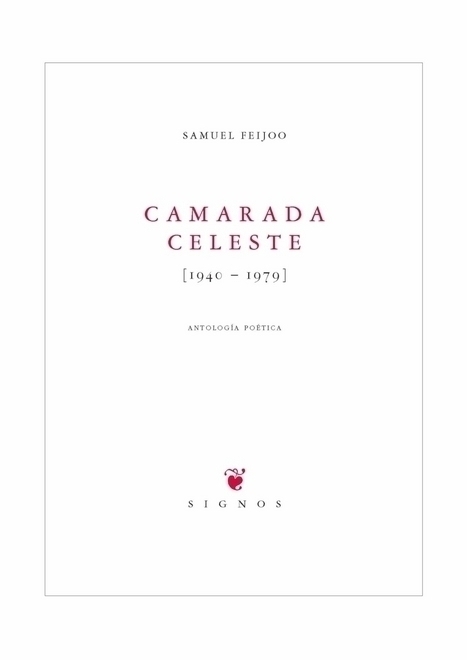4.1.1.22.2 “Celestial Comrade”, 1944 by Samuel Feijóo

The collection of poems “Camarada celeste,” published in 1941 by Samuel Feijóo, reflects the enrichment of nature through the poet’s lyrical expression, a fruitful dialogue in which the bard reveres and finds himself within the realm of nature, from which emerges an ethic that the poet embraces and proposes through words dictated by his own vital connections. His aesthetic is permeated with a subtle eroticism as one of the possible links with the immediate universe.
The apprehension of reality in this collection of poems is offered in a way in which the fruitive and the intellectual converge without fractures, with an understanding that does not delve into conceptual depths but rather seeks to construct a transcript of all its perceptions, to immerse itself in them to reach the core of nature, the radiating center of the living, but not in an abstract sense.
However, the collection of poems did not receive a warm welcome in the lyrical world of its time. Virgilio Piñera, in his book Orígenes, acidly pointed out that it reflected an outdated poetic sensibility and style, one that could have fit into the national poetic landscape a decade earlier but not in the 1940s, when other innovative endeavors had taken root. In this regard, he goes so far as to state:
“It’s obvious, it doesn’t need any proof, that these verses add nothing to this final process of our poetry; they don’t take it down uncharted paths. They can’t be new (new in the sense that this word is meant to take here especially) because they are already old, that is, already sung, discovered by others.”
Virgilio Piñera was undoubtedly categorical in his judgment of this poetic work by Samuel Feijóo, which, while not explicitly innovative, nevertheless shies away from the limits of literary schools to express his own feelings, with an authenticity that constitutes one of its most important achievements, in a context where urbanism sometimes advanced with alienating consequences. Furthermore, the relationship between Samuel Feijóo’s work, despite the differences, and that of Juan Ramón Jiménez, rather constitutes a leavening for our tradition.
One of the poetic texts around which the collection of poems is structured is the following:
“We converse with the night wind,
comrade from heaven.
We cannot dodge these constant wings,
always happy when flying, desperate when
close
on the sinister land…
Time opens its roses at every moment,
And where are we to enjoy it before its
drop?
If I could know the mystery
by the hand of the god who borders the wings of the
butterflies…
(Does he not tremble when he begets the blind?)
Through the air, towards the fire of the heavens.”
In this collection of poems, we see an everyday conception of the divine, of the miracle, whose highest expression is the natural, the colorfulness of the butterfly. However, it already reveals a concern he would insist on in his later verses: the other side of nature, the tremendous, deformed, monstrous, which implies a questioning of the infallibility of creation and, therefore, the perfection of God and the very meaning of pantheism.
In general, in this collection of poems, the thematic concerns that he had already indicated in previous verses come together with a more refined lyrical sense: the human, the divine and the natural constitute the triad that underpins his work from an aesthetic point of view, from which derives an ethic that has as its support the love of all creation and its attribute of beauty, despite the contradictions that in this sense may jump before the poet’s eyes.








